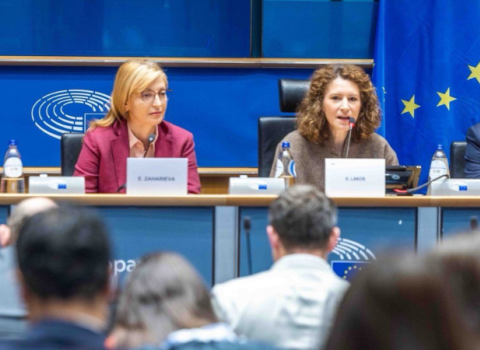Switzerland will be barred from participating as a full member of Horizon 2020 and Erasmus during 2014, the European Commission said yesterday (26 February).
This follows the suspension of talks on Swiss participation last week after a recent referendum in the country delivered a narrow majority in favour of bringing back strict quotas for immigration from EU countries, prompting the government to renege on an agreement to grant free movement to migrants from Croatia, the EU’s newest member.
Yesterday, the Commission clarified Switzerland’s status. “In the absence of an agreement on Horizon 2020, Switzerland does not participate as an associated country,” László Andor, the Commissioner for Employment told MEPs in Strasbourg. “This means that for 2014 calls for proposals, the participation of Swiss entities will be according to the provisions governing the participation of third countries.”
Previously Switzerland, as an associated country, had the same rights of access to funding as EU member states. In this new arrangement, however, a Swiss participant in a research consortium will no longer count towards meeting Horizon 2020’s eligibility criterion of having at least three different member states or associated countries as participants.
Andor’s announcement took many by surprise – and seems to reflect the Commission’s intention to draw a line in the sand on immigration policy. A fear in Brussels is that, if the Swiss get away with “Europe à la carte” – choosing to play in the EU research programmes but refusing to observe immigration rules – other countries, including EU members, might start agitating for the same privilege. A quick “no” heads off that possibility, and gives a spur to the Swiss to sort things out.
The Swiss formula
The decision will hurt both the Swiss and the EU’s R&D programmes. Switzerland has been a big beneficiary of past R&D programmes, winning over €1 billion and participating in 3,000 EU research projects between 2007 and the end of 2013. For Horizon 2020, Switzerland was due to put €3.6 billion back into the pot.
The move will not only affect Swiss participants but also researchers applying for European Research Council (ERC) grants, who will no longer be able to base themselves in Swiss institutions. The success rates of researchers applying with Swiss host institutions have been roughly twice as high as the European average. As of December 2013, 318 ERC grant holders are based in Switzerland, of which 75 per cent are non-Swiss nationals.
Then there is the matter of the Human Brain Project, based at EPFL. The €1 billion, ten-year mission to create a detailed and functioning computer model of the human brain is one of the EU’s most prestigious and internationally visible research projects.
The ruling on 2014 grant calls does not affect Framework Programme 7 funding and will not affect grants previously awarded to the Swiss, but it could upset partnership plans for scores of new projects that Swiss institutions have been planning with EU universities and labs.
It is also possible that the reduced competition will make it easier for other EU researchers – including those from countries with less well-developed science bases – to win ERC grants.
Continue to prepare
The Swiss government declined to comment on the announcement last night (26 February) and has not officially released a response. Its position remains that project submissions by Swiss participants should continue to “be prepared and executed in accordance with the requirements and deadlines of the European Commission.”
A representative for Swiss companies in Brussels said that the Swiss will be “as pragmatic as can be under the circumstances.” In the next few days, the priority will be to ask universities, companies and research organisations if they have any questions, and to clarify the new status.
The CEO of the Swiss Biotech Association Domenico Alexakis said, “The decision to downgrade Switzerland is unfortunate but has to be accepted. The Swiss government is working on solution scenarios for both programmes, and both industry and academia are hopeful that a beneficial situation will be presented soon.”
Olivier Küttel, Head of European Public Affairs at EPFL, said Switzerland is, “Very concerned about third country status and missing out on some of the very prestigious programmes like ERC for example.”“Now, as long as there is life there is hope: at least the European Commission says that the status of Switzerland could immediately change if an agreement is found,” he added.
Jerome Grosse, a spokesman for the EPFL, said that university’s mood is still the same as it was last week and that “they expect to find a solution.”
Strong words
The Greek minister for European affairs Dimitris Kourkoulas told MEPs, “Switzerland cannot expect the EU to accommodate its vote against the free movement of persons.”Some MEPs were bullish on the EU’s course of action whilst others strongly objected.
“I believe that the MEPs from Croatia respect and want us to stand for their rights,” said Mairead McGuinness, Irish deputy.
“It is up to Switzerland to find solutions, it is not up to the EU to do that,” said French MEP Daniel Cohn-Bendit.
British deputy Vicky Ford commended Switzerland’s reputation for research. “Any attempt to sanction Switzerland by limiting [its] participation in science and research could be detrimental to us all,” she said.




 A unique international forum for public research organisations and companies to connect their external engagement with strategic interests around their R&D system.
A unique international forum for public research organisations and companies to connect their external engagement with strategic interests around their R&D system.